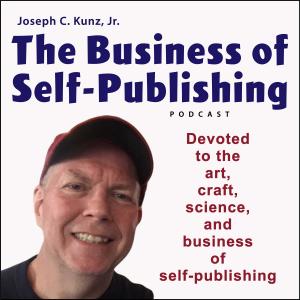The Business of Self-Publishing

7 Types of Testimonials: The Good, the Bad, and the Ugly
Updated March 1, 2023 Subtitle Good testimonials are a critical ingredient in your book’s financial success Synopsis Testimonials are one of the critical ingredients of your book’s marketing plan. If created and utilized correctly, they can positively impact your sales. This list gives you a quick run-down of a variety of testimonials. What You Will Learn 1. You will learn the seven most common types of testimonials. 2. You will learn the essential ingredients that enable a testimonial to help your book sales. 3. You will learn why you must get an assortment of testimonials. Introduction Testimonials are one of the critical ingredients of your book’s marketing plan. If created and utilized correctly, they can positively impact your sales. Once you understand the differences, you will be better prepared to explain to your readers and fans how to create a testimonial that will help you improve your book sales. This list gives you a good idea of what makes a compelling, mediocre, and useless testimonial. Here is my list of the seven types of testimonials that you should know about and recognize: Type # 1. Faked testimonial I strongly advise against using a fake testimonial. Readers, who are also your customers, are sophisticated and tuned in to what is real or fake. If there’s even the slightest hint of being contrived, you’ll lose your audience – and they won’t return. Don’t forget that it is effortless to get legitimate testimonials. So, there’s no practical reason to create fakes. You must be careful not to do things like this because it will cause you and your book to lose credibility with your audience. And, as a self-publisher, credibility with your audience is essential if you expect to have any kind of success – financial or critical. Building credibility with your audience can take years to make. Don’t ruin all your hard work by being too lazy to get legitimate testimonials. Type # 2. Real testimonial without the person’s name, title, and company For example: “Jones’ book was really good.” Zachary S. For example: “Jones’ book was really good.” Zachary S. This testimonial is a total waste of time and insulting to your audience. Your audience will automatically assume that these are fake despite being real. And, if not perceived as counterfeit by remote chance, your audience will question why none of your readers would give their full name and title. You will lose sales either way. Many people are willing to use their full name and title, and your buying audience knows this. Your job as a self-publisher and book marketer is to find them. Type # 3. Real testimonial with person’s name, title, and company, talking about your book in generalities For example: “Jones’ book was enjoyable to read.” Dr. Zachary Smith, associate physics professor, MIB University. This one is also too vague to be of much value to your buying audience. But at least this one has a natural person with a fancy title attached to it. You’ll need to get back to this person and ask them for a more specific testimonial. Mention a few things they might have noticed or been interested in in your book. Tell them more about what you were trying to accomplish with your book. Type # 4. Real testimonial with person’s name, title, and company, talking about you the author For example: “Jones is an amazing author and teacher. His writing is so clear and concise.” Dr. Zachary Smith, associate professor in physics, MIB University. This testimonial is a remarkable statement about you, the author, but it does not say anything about the book itself. Some might be swayed to purchase your book because it says nice things about you. But most consumers want to know more about the book itself. They want to know how your book has helped other readers. Type # 5. Real testimonial with person’s name, title, and company, talking about themselves and how they benefited from your book






 Visit Podcast Website
Visit Podcast Website RSS Podcast Feed
RSS Podcast Feed Subscribe
Subscribe
 Add to MyCast
Add to MyCast